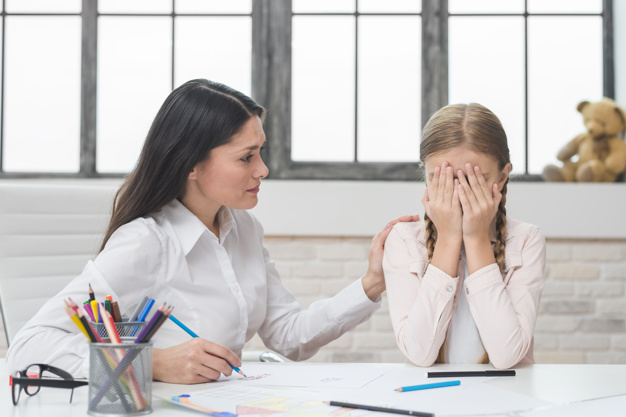Dealing with childhood anxiety
Today's children face more change, and more quickly than previous generations. They are exposed to global events through the Internet and the media. Most children, like adults, experience some disturbing moments or have frightened thoughts and feelings from time to time about specific events. Anxiety is a common and natural reaction and everyone experiences feelings of anxiety from time to time. Anxiety is more common than anxiety. She embraces and carries on. Children are worried about big and small things. Typical childhood fears change with age. It includes fear of strangers, heights, darkness, animals, blood, insects, and being left alone. Children often learn to fear a certain object or situation after an unpleasant experience, such as a dog bite or an accident. Separation anxiety is common when young children start school. Children often don't realize worrying about what it is and they may think there is something "wrong" with them or that they are strange, weak or crazy. They may feel anxious, uncomfortable, on the edge of a nerve, anxiety, or fear of something that might happen. This thinking makes them feel more anxious. It is normal for new, unfamiliar or challenging situations to arouse feelings of anxiety or nervousness. Anxiety can arise from issues such as bullying, lack of good performance at school, making friends, repercussions with friends, peer pressure, family conflicts, performance in sports, moving home, and divorce. Although these situations do not actually threaten a person's safety, they can cause a person to feel "threatened" because of a possible embarrassment or worry about committing a mistake, installing, stumbling, accepting, rejecting, or losing pride. Anxiety can be a good thing when it helps you cope with a tense situation. For example, when you study for the test,
Tips for parents to help their children cope with anxiety
- Be supportive, compassionate and listen.
- Encourage your children to talk about their fears and anxieties. They should know that it is OK to talk about these things.
- Show acceptance of their anxiety thoughts or feelings of anxiety. Acknowledge that your child's concerns are real to them.
- Courage reward, non-anxiety behavior encourage children to go!
- Divide the challenges into small steps.
- Reassuring your child that everyone feels anxious at times and that while he may feel uncomfortable he will eventually decrease.
- Help your child recognize the signs of physical anxiety early so that it does not escalate. Remind them to stop and think.
- Avoid taking over. Children with anxiety are usually very happy for someone else to do things for them. However, if adults acquire them, this prevents them from learning to deal with themselves.
- Encourage relaxation and calm breathing, allowing greater control of thinking.
- Help them feel more empowered. He reminded them of times in the past when they overcame fear. For example. Remember when you went to dream about the world and did not want to go on a tour as you overcame your fear. you can do that.
All children sometimes have difficulties. But if their problems do not disappear or interfere with daily life, then you may need help. If anxiety is interfering with your child's daily life, seek help from a school counselor or other mental health professional. Don't ignore the problem and trust it will disappear.

/image%2F3215433%2F20191125%2Fob_bcab07_medical-medschool-medstudent-steth.jpg)
